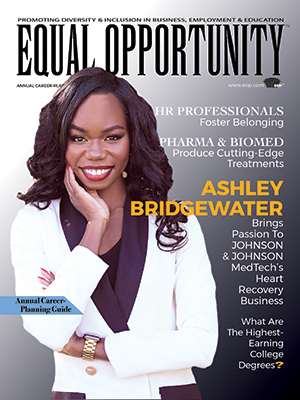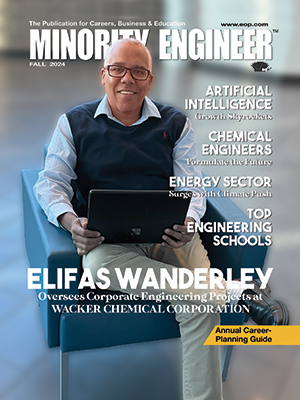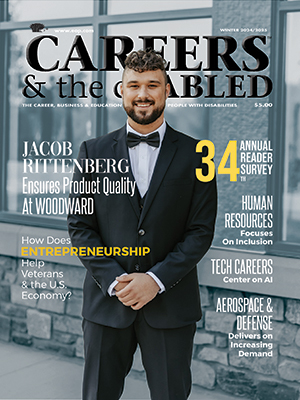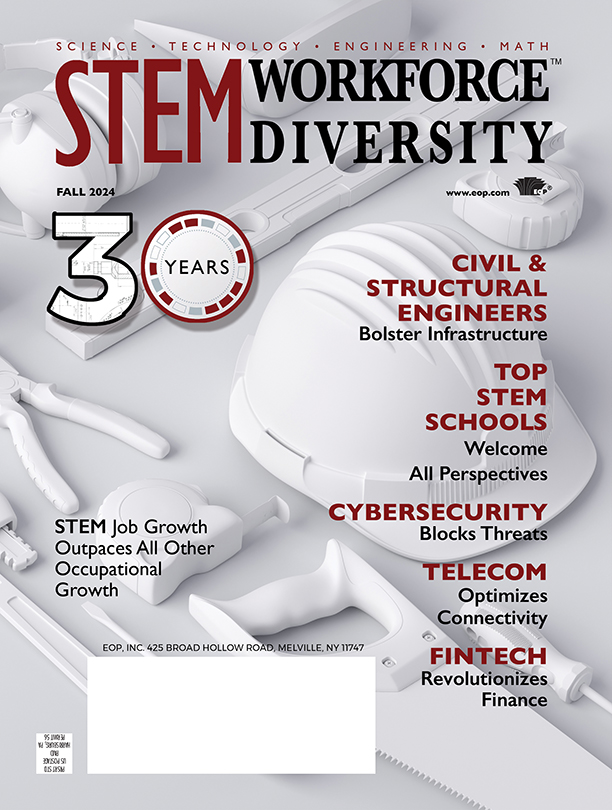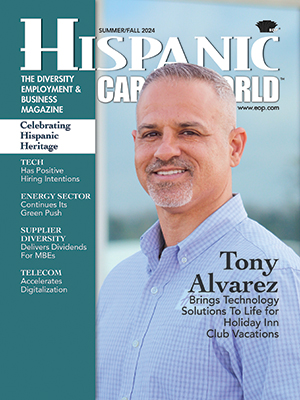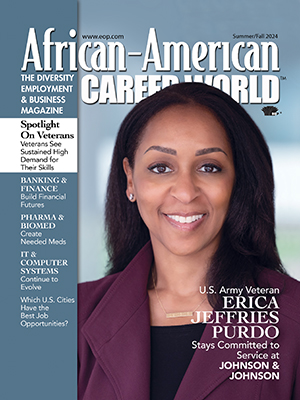By Amanda N. Wegner
Hispanic professionals are a force for quality, innovation, leadership and more in the pharmaceutical/biomedical industry.
The pharmace
Being an entrepreneur is hard, as around one in five new businesses fail within the first year. However, being in the right state can make the process a lot easier, and Utah is the best state for starting a business, according to a new report by WalletHub.
It’s followed by Georgia, Florida, Idaho and Nevada. The report analyzed 25 indicators of business-friendliness across three categories: business environment, access to resources, and business costs.
Utah is the best state for starting a business because businesses have greater access to loans than in any other state, and Utah has the largest annual employment growth in the country, at nearly 2.5%.
During a time when money is tight, having ready access to capital and being in a state where business is booming can mean the difference between a start-up business thriving and dying during its first few years.
utical/biomedical industry shows no signs of slowing, thanks to various tech-based innovations that support patient needs, mitigate disease and injury, and provide life-giving patient care. Learn more from the featured Hispanic professionals here who are a force for quality, innovation and more, going from labs to leadership in the industry.
Grabacki Helps Translate Customer Needs to Ensure Adequate Supply for Abbott
As the senior manager for the U.S. supply planning team for the infectious diseases unit in Abbott’s rapid diagnostics business, Yanira Ruiz Grabacki, MBA works with Abbott’s commercial and marketing teams to understand the current customer needs for tests for coronavirus (COVID-19), flu, RSV, and other infectious diseases, and then translate those needs into a supply plan for manufacturing sites.
Recently, Grabacki worked on a project that involved updated labeling of a key product. “As we started working on this project, respiratory virus cases were picking up across the U.S., and demand for our products increased,” she explains.
“We realized we needed to get these products to our customers even more quickly than usual. To meet the growing demand, we got additional support from different teams, and met twice a day for two weeks to ensure the tasks that needed to be done were expedited for a timely delivery. Not only did we complete the project, but we also did so ahead of schedule.”
At Abbott for 11 years, she began as a college intern, then was accepted into Abbott’s year-long operations professional development program. Through the program, she gained experience rotating through four different positions at various sites across the U.S.
“I came to Abbott because I wanted to do purposeful work, and when I learned about all of the technologies the company develops that positively impact people’s health, Abbott seemed like a place where I could make a difference,” Grabacki shares.
“During the first few weeks of my internship, I saw a broadcast of a surgery where they used one of the products made at the manufacturing site at which I was working. In that moment I realized just how important our work is. We’re making technologies that are helping people live better and healthier.”
In addition to the technology, people and a supportive environment also make Abbott a great place to work, according to Grabacki. “Every day, I work with innovative people from different backgrounds who want a meaningful career and are passionate about the company’s purpose.”
One piece of advice Grabacki has found helpful for career success is that first impressions matter. “Strive for excellence, and be ready to show your own brand on day one of your internship or job,” she elaborates.
Reflecting on her own career, Grabacki further offers three factors she’s found crucial for advancement. The first is work ethic: “You need to be willing to put significant effort into your job.”
Secondly, find an advocate who will support you in your career growth. This could be a formal mentor, manager, or colleague who helps guide you and advocates for you.
Finally, look honestly at your department or team, and ask if there’s growth or if people stay in their roles too long. If your colleagues aren’t advancing, she notes, then consider whether it’s because they don’t want to or don’t have opportunities to grow their careers.
“Ultimately, I’d stress to my younger self the importance of working for a company that helps you grow and develop. I’m happy I found that at Abbott,” she concludes.
Abbott is headquartered in Abbott Park, IL. Find career opportunities at abbott.com/careers.html. Connect on Facebook, X, Instagram, YouTube and LinkedIn.
Brodsky Helps Build a Culture to Support, Attract & Retain Talent at GE HealthCare
As the global diversity, equity, and inclusion (DEI) effectiveness leader at GE HealthCare, Yvonne Brodsky develops and sustains a diverse, equitable, and inclusive environment. She does this by implementing programs that shape the company’s culture to attract the best talent and keep current colleagues excited to stay at GE HealthCare.
“We know that people are our biggest assets, and the culture we foster needs to support our people and enable us all to be our best,” says Brodsky, who also manages external DEI partnerships and works closely with the company’s sustainability team.
One thing Brodsky most enjoys is developing strategy, creating frameworks and driving them to execution, which is what she did when she rejoined GE HealthCare in July 2023.
“I built our Next Generation Resource Group governance model, structure and succession planning,” says Brodsky. “Out of a workforce of more than 50,000 colleagues, more than 20% belong to one of our resource groups. Therefore, we needed to create a standard of work and playbook for our resource groups so they can do what they do best: create a culture of belonging.”
A boomerang employee, Brodsky worked in various human resources (HR) roles at GE HealthCare for seven years, then joined Meta for two and a half years to lead key global strategic recruiting programs to attract underrepresented talent at all levels of the company.
“Now I’m back. Why, you may ask? After a personal family health experience, I reflected on my career and personal journey. It made me realize I wanted to work for a company that helps save lives,” she shares. “A company that builds medical equipment that allows families to be diagnosed accurately. GE HealthCare is that company for me. I knew I had to find my way back.”
One aspect that makes GE HealthCare a great place to work is its leadership. “Managers can influence how satisfied or unsatisfied a colleague feels at work,” elaborates Brodsky.
“We have exceptional leaders in our company who care deeply about their people and want to do the right thing. Through my role, I see them in action every day as they navigate difficult decisions or advocate on behalf of their teams.”
To progress in your career, Brodsky advises that “your network is everything, so treat it like a dear friend.”
She adds that every job she’s had in her career is because someone tapped her on the shoulder and saw potential in her.
“You never know who your next leader will be or from where the opportunity will come. Treat every interaction with authenticity and nurture the relationships you feel a genuine connection to,” she continues.
Brodsky also speaks to the importance of identifying what brings you joy. “When you’re working on a project or a team, what are those moments that have brought you the most joy? Then consider how you might be able to replicate those moments and turn them into your full-time job.”
GE HealthCare is headquartered in Chicago, IL. Find career opportunities at careers.gehealthcare.com. Connect on LinkedIn, Facebook, X, Glassdoor, Instagram and YouTube.
Morales Finds Culture & Belonging at Takeda Pharmaceuticals
With Takeda Pharmaceuticals for three years, Karla Morales appreciates that she’s found a place where her voice is heard. Morales is a principal scientist for Takeda’s small molecules and oncology operating unit. In this role, she serves as the site’s technical expert for products manufactured by external companies.
For instance, one facility she works with recently added new equipment to produce tablets. Morales oversaw the feasibility, or trial, work to ensure they’d pass the company’s specifications and analytical tests used in Takeda’s manufacturing process.
“This included developing the strategy around what process parameters could be impacted and how they related to the quality of the drug product,” she indicates.
With 19 years of experience in the pharmaceutical industry, she joined Takeda in 2021, first working remotely from Puerto Rico before moving to the company’s headquarters in Boston, MA.
“I was attracted to Takeda because of the opportunity to function in a global role that would allow me to visit different sites in the U.S. instead of remaining at one site exclusively,” says Morales.
What she loves most about Takeda is its culture and how she felt she belonged shortly after starting. “Everyone has been friendly; they’ve welcomed my ideas and feedback. I truly feel seen because they also appreciate my experience and background. As a Latino woman in STEM, I’ve noticed your contributions and ideas aren’t always listened to, but, at Takeda, my voice has always been heard.”
Morales loves working for a company with a rich history of developing therapies to help patients worldwide, and she knows her contributions aren’t limited to her work. She’s also an active member of Impacto, a resource group focused on addressing underrepresentation in STEM and healthcare within the Latinx community, providing a network for career growth, and raising awareness of the unique healthcare needs of Latinx patients.
“I’ve been able to contribute my knowledge within and outside Takeda by volunteering,” notes Morales. “I know I’m part of something bigger that’s contributing to better health and a brighter future for everyone.”
When it comes to advice, Morales offers several key points. First, find what you like, but remain open to trying different things. “You never know if you’ll pivot and like something else that ignites your passion even more. Believe in yourself, and don’t be afraid to make changes to your professional choices.”
Secondly, don’t limit yourself. And don’t be afraid to move on if you’re not being heard, don’t feel appreciated, or are uncomfortable where you are.
“Be courageous and bold. Finally, remember, if you’ve made it this far, then you can accomplish anything you set your mind to,” she adds.
These are pieces of advice that have guided Morales through her educational and professional journey. She had her first son while working on her undergraduate degree, and later balanced parenting two children, her career, and master’s education as a single parent.
“I stand by my advice about believing in yourself and that you can do whatever you put your mind to. I did that,” she concludes.
Takeda is globally headquartered in Tokyo, Japan, with its U.S. hub in Massachusetts. Find career opportunities at takeda.com/careers. Connect on LinkedIn, X and YouTube.
Luciani Helps Ensure Vertex Produces High-Quality Medicines
As a senior director, Carla Luciani, Ph.D., helps develop chemical processes to ensure the molecules coming from Vertex’s research team are produced using advanced and robust manufacturing processes that ensure high-quality medicines.
Recently, Luciani, a chemical engineer, has been involved in developing late-stage molecules in the company’s engineering and material sciences department. “At the last stages of process development, chemical processes need to be ready for long-term commercial production,” she explains.
“My team and I ideated and executed data-rich experiments, developed mathematical models to describe those chemical processes, and used quality-by-design approaches. It was a lot of fun!”
Luciani has been with Vertex for about three years. “I knew Vertex was highly innovative due to some of the work I’d seen the team present at conferences and workshops about the use of continuous manufacturing. I think that attracted me the most in the first place,” she reflects.
The company’s “smart, hard-working, motivated people” make it a great place to work,” she adds. “The innovative mindset comes from Vertexians’ sense of urgency, a behavior well-ingrained in the company culture.”
Luciani advises others to be flexible in their careers. “I don’t see careers as straight lines anymore,” she elaborates.
“Winding career paths are also enlightening ones. What I’d call today ‘key roles’ in my career were the ones I wouldn’t have picked myself.”
Some advice she’d offer her younger self is not to get too comfortable and to ask for help.
She adds that technical depth is required for those choosing to work in a scientific field.
“Training for critical scientific thinking takes time, but it’s time well spent,” Luciani continues. “We don’t need to accept things the way they are, but there’s no way to change the way things are if we don’t understand them.”
Vertex is headquartered in Boston, MA. Find career opportunities at vrtx.com/careers. Connect on X, LinkedIn and YouTube.
Innovation Continues to Push Faster Growth
Healthcare is constantly looking toward the future as the pharmaceutical/biomedical industry races to produce solutions that support patient needs, dispense hope, and provide life-giving care, as well as mitigate disease and injury. As a result, innovations in the pharma/biomed industry are helping people live fuller, longer lives.
All of this growth and innovation requires human capital. While Frost & Sullivan found that 78% of pharma companies around the globe are expected to use artificial intelligence (AI) in drug discovery by 2025, this will create new roles in AI/machine learning expertise and data analysis. In addition, Grand View Research indicates the global clinical trial market is expected to reach $64.8 billion by 2028, thereby increasing demand for clinical research associates, project managers, and data coordinators.
It’s clear that pharma/biomed is showing no signs of slowing, continuing to grow fast and continuing to provide myriad therapeutic job opportunities for Hispanic professionals who are already a force for quality, innovation, and more, going from labs to leadership.
Captions & Callouts:
Yanira Ruiz Grabacki, MBA is the senior manager for the U.S. supply planning team for the infectious diseases unit in Abbott’s rapid diagnostics business.
“You need to be willing to put significant effort into your job.”
Yvonne Brodsky is the global diversity, equity, and inclusion (DEI) effectiveness leader at GE HealthCare.
“Your network is everything, so treat it like a dear friend.”
Karla Morales is a principal scientist for Takeda Pharmaceuticals’ small molecules and oncology operating unit.
“I stand by my advice about believing in yourself and that you can do whatever you put your mind to. I did that.”
Carla Luciani, Ph.D. is a chemical engineer and a senior director who helps develop chemical processes to ensure the molecules coming from Vertex’s research team are produced using advanced and robust manufacturing processes that ensure high-quality medicines.
“Training for critical scientific thinking takes time, but it’s time well spent.”
Best & Worst States for Starting a Business
Best States
- Utah
- Georgia
- Florida
- Idaho
- Nevada
- Arizona
- Colorado
- Texas
- North Carolina
- Tennessee
Worst States
- Missouri
- Hawaii
- Pennsylvania
- New Jersey
- New Hampshire
- West Virginia
- Maryland
- Alaska
- Connecticut
- Rhode Island
Each of the best states for starting a business brings something unique to the table. For example, Georgia has one of the highest entrepreneurship rates in the country, and some of the lowest taxes. Florida has one of the highest GDP growth rates, and its working-age population is growing quickly. Iowa has a very high business-loan availability, and Nevada keeps the cost of providing health insurance to employees low.
“Starting a business is a difficult and risky process, but where you live can highly influence your chances of success. Before establishing a business in any location, make sure to do research to ensure it’s an ideal place for your customer base, has enough labor and supplier availability, and suits your needs when it comes to financing,” according to WalletHub.
Source: wallethub.com

